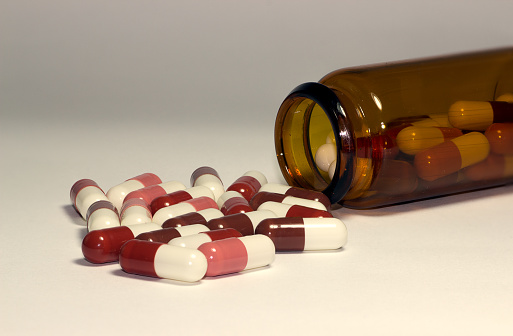
You are probably no longer shocked to hear that science has linked stress to a wide range of diseases like heart disease, asthma, obesity, and diabetes. It’s also linked to mood disorders. While there are many mood disorders, the most common are anxiety, depression and bipolar disorder.
In our fast-paced world, it’s difficult to avoid stress and it's now almost a fact of life.
Fortunately, there is much we can do to alleviate the pressures of our work, home, and social life through making lifestyle changes. Exercise to reduce stress and anxiety like running, a healthy diet, and practices like meditation can work wonders.
Unfortunately, not all ways of relieving stress are healthy. Stress-induced mood disorders such as anxiety, depression and bi-polar are often self-treated with drug or alcohol. These unhealthy answers to combat stress can contribute to drug or alcohol addiction.
A Chain Reaction
Usually, the negative spiral consists of the following chain reaction:
First, a person experiences sufficient stress to precipitate a mood disorder. This could be ongoing stress like a low-paying job where they feel emotionally abused by the managers. It could also be a major life event like getting fired from a job or losing their spouse.
Second, this person tries to assuage their mood disorder through substance abuse. Since this substance abuse appears to provide temporary relief, a person uses this apparent solution more frequently. As their tolerance builds up, they may increase their preferred form of self-medication.
Third, the person reaches a point where their life situation becomes increasingly chaotic to the point where even clinical intervention is not sufficient to turn things around. According to Reflections Recovery, a dual diagnosis residential treatment center, “individuals with depression can have a difficult time actively and willfully participating in the recovery process when they have overwhelming beliefs that their lives are hopeless or meaningless.”
Co-existing Conditions
Although there is a close link between stress, mental health disorders, and substance abuse, it’s a mistake to assume that there is a direct relationship. They do not cause each other. It’s more reasonable to assume that they exacerbate each other. A stressful situation can aggravate a pre-existing mental disorder. In turn, a mental disorder may lead to self-medicating the symptoms of distress.
Recognizing Symptoms
How can you recognize if someone has a mental disorder that has led to substance abuse? When mental illness co-occurs with drug addiction, the issue is usually a mood disorder like anxiety disorder, depression, or bipolar disorder.
Let’s take a look at the symptoms of these common mood disorders.
Anxiety Disorder
Someone who has anxiety disorder is likely to show the following seven symptoms.
- They have excessive muscular tension, and this can lead to frequent headaches.
- They worry about small things.
- They often feel restless, and they may be nervous, jumpy or edgy.
- They have a rapid heartbeat and shortness of breath.
- They may feel dizzy, tremble, or nauseous.
- They have trouble concentrating.
- They have trouble falling asleep or staying asleep.
Depression
Someone who suffers from depression is likely to show the following seven symptoms.
- They have a recurring feeling of helplessness and a bleak outlook on their life.
- They have little interest in daily activities.
- They experience little to no pleasure.
- They either eat too little or too much, and they show dramatic weight changes.
- They either sleep too much or too little.
- They are lethargic and listless.
- They have strong feelings of guilt, shame, or feeling worthless.
Bipolar Disorder
Someone who suffers from bipolar disorder is likely to show the following seven symptoms:
- They may feel either mania (euphoria) or depression.
- They have unrealistic and grandiose beliefs about what they can achieve.
- They don’t sleep much.
- They speak rapidly and their thoughts race.
- They show poor judgment and behave impulsively.
- They show many signs of hyperactivity.
- They are easily angered or roused to rage.
While this list is by no means exhaustive, it can give you some indication of what to look for.
Treatment Options
When it comes to treatment, there are two possibilities: self-help in conjunction with external clinical support or going to a residential treatment center.
Self-Help
Here are three ideas for self-help:
- · Recognizing stress and emotions associated with anxiety, depression, or bipolar disorder and taking steps to manage them.
- · Staying connected with a therapist, a support group, and a doctor to help monitor progress and provide assistance.
- · Making healthy lifestyle changes such as practicing relaxation techniques, eating a healthy diet, exercising regularly, getting enough sleep, and abstaining from substance abuse.
While it’s theoretically possible to use self-help measures, these are rarely successful if the stress, mental disorder, or substance abuse has reached a point where a person is unable to manage their own behavior. In this is the case, it’s important to seek help from a residential addiction treatment center.
Residential Treatment Center
It’s recommended to find a treatment center that has Masters-level therapists and that offers both individual counseling and group therapy.
Seeking Help
It's often difficult to self-diagnose or notice someone's symptoms because of resistance to admitting mental illness. If you or someone you love appears to have an unusually difficult time coping with life, it's best to seek help to find out what's going on.
